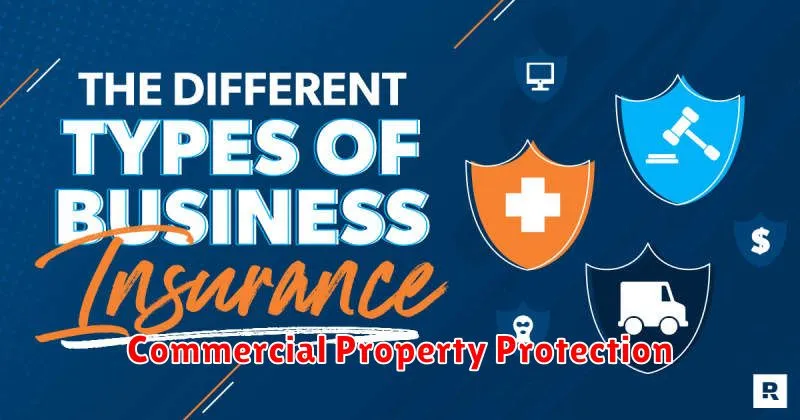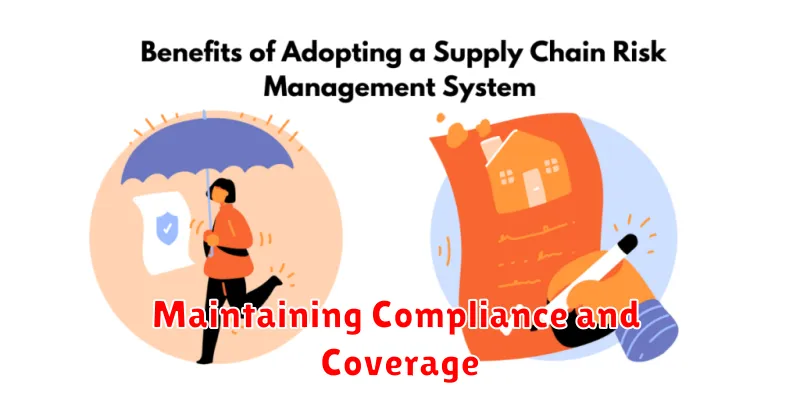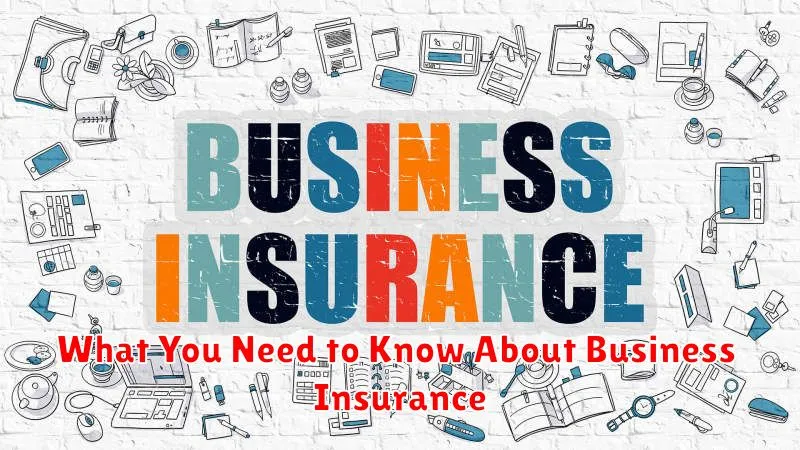Running a business, whether large or small, involves inherent risks. Protecting your livelihood against these potential hazards is crucial, and that’s where business insurance comes in. Understanding the different types of business insurance available and selecting the right coverage for your specific needs is a critical step in mitigating risk and ensuring the long-term success of your enterprise. This article will provide you with essential information regarding business insurance, outlining the various options, explaining the benefits, and guiding you through the process of obtaining the protection you require. From general liability insurance to professional liability insurance, property insurance to workers’ compensation insurance, we will cover the key aspects of business insurance that every business owner should know.
Navigating the complexities of business insurance can seem daunting, but it’s an investment that can safeguard your business from unforeseen circumstances. This comprehensive guide will demystify the process, explaining the importance of business insurance in protecting your assets, employees, and financial stability. We will explore the potential consequences of operating without adequate business insurance, emphasizing the significant financial and legal ramifications. By the end of this article, you will possess a clearer understanding of the crucial role business insurance plays in the success of your business and be equipped with the knowledge to make informed decisions about your business insurance needs.
Why Insurance Matters for Businesses
Running a business involves inherent risks, from property damage and liability claims to unexpected interruptions. Business insurance acts as a crucial safety net, protecting your company from financial devastation in the face of these unforeseen events. It allows you to transfer risk to an insurance company, providing financial resources to recover and rebuild.
Protection against liability is a key benefit. If your business is found legally responsible for damages or injuries, insurance can cover the associated costs, including legal fees and settlements. This safeguard is essential for protecting your business assets.
Business continuity is another vital aspect. Insurance can help cover lost income and expenses during unforeseen events like natural disasters or fires, ensuring your business can continue operations and meet its obligations.
Types of Business Insurance
Several types of business insurance policies address various risks. Choosing the right coverage depends on your specific industry, business size, and potential liabilities. Here are some common types:
Property Insurance
Property insurance protects your physical assets, such as buildings, equipment, and inventory, from damage or loss due to events like fire, theft, or natural disasters.
Liability Insurance
Liability insurance covers legal and medical expenses if your business is held responsible for causing harm to another person or their property.
Business Interruption Insurance
Business interruption insurance helps replace lost income if your business is forced to temporarily close due to a covered event, such as a fire or natural disaster.
General Liability vs Professional Liability
Understanding the difference between general liability and professional liability insurance is crucial for businesses. General liability insurance covers physical risks, such as bodily injuries or property damage, occurring on your business premises or resulting from your operations. Think slips, falls, or accidental damage to a client’s property.
Professional liability insurance, also known as errors and omissions (E&O) insurance, covers claims of negligence or mistakes in your professional services. This includes claims of inadequate work, missed deadlines, or errors in advice. It protects against financial losses due to lawsuits related to your professional expertise.
Workers’ Compensation and Employee Coverage
Workers’ compensation insurance is a crucial aspect of business insurance, particularly for businesses with employees. It provides coverage for medical expenses and lost wages for employees injured on the job, regardless of fault. This protects your employees and shields your business from potential lawsuits related to workplace injuries.
The requirements for workers’ compensation insurance vary by state. Most states mandate it for businesses with employees, although the specific number of employees required for coverage can differ. It’s essential to understand your state’s specific regulations to ensure compliance.
Beyond workers’ compensation, consider other forms of employee coverage like disability insurance and group health insurance. These offerings can enhance your employee benefits package and provide additional financial security for your workforce.
Commercial Property Protection

Commercial property insurance safeguards your physical business assets. This includes the building itself, if you own it, as well as its contents. Think equipment, inventory, furniture, and important documents.
This type of coverage protects against a range of perils. Common perils include fire, theft, vandalism, and weather-related damage like storms and floods. Note that some perils, like floods and earthquakes, might require separate policies or endorsements.
The extent of coverage varies based on your specific policy. Be sure to carefully review the policy details with your insurance provider to understand what is and isn’t covered.
Cyber Insurance for Online Businesses
In today’s digital landscape, cyberattacks are a significant threat to businesses of all sizes, especially those operating online. Cyber insurance is a specialized type of insurance designed to help businesses mitigate the financial losses associated with these attacks.
Coverage typically includes expenses related to data breaches, ransomware attacks, and other cybercrimes. This can involve the costs of data recovery, legal fees, notification costs to affected individuals, and regulatory fines.
Assessing your needs is crucial. Consider the type of data you handle, the potential impact of a breach, and your existing security measures. Different policies offer varying levels of coverage and it’s important to choose one that aligns with your specific risks.
Assessing Your Business Risk
Assessing your business risk is a crucial step before purchasing insurance. It helps determine the types and amount of coverage you need. A thorough risk assessment involves identifying potential hazards and evaluating their potential impact on your business.
Consider potential financial losses from events like property damage, liability lawsuits, and business interruption. Also, analyze operational risks such as supply chain disruptions, data breaches, and reputational damage. The severity and likelihood of each risk should be evaluated.
Prioritize the risks with the highest potential impact and probability. This will help you focus your risk management efforts and ensure you have adequate insurance protection for the most critical threats.
Comparing Providers and Quotes
Once you’ve identified the types of business insurance you need, it’s crucial to compare providers and quotes. Don’t settle for the first option you find. Shopping around can save you a significant amount of money.
Consider factors like the provider’s financial strength, customer service reputation, and the specific coverage details offered in each quote. Pay close attention to policy limits, deductibles, and exclusions. A lower premium isn’t always the best deal if it means sacrificing essential coverage.
How to Make a Claim
Filing a business insurance claim can seem daunting, but understanding the process can simplify matters. Contact your insurance provider immediately after an incident occurs. This prompt notification is crucial.
Document everything thoroughly. This includes taking photos, gathering witness statements, and retaining any relevant receipts or invoices. The more documentation you have, the smoother the claims process will be.
Your insurance provider will likely assign a claims adjuster to your case. Cooperate fully with the adjuster and provide any requested information promptly. They will assess the damage and determine the extent of coverage based on your policy.
Maintaining Compliance and Coverage

Staying compliant with insurance regulations is crucial for avoiding penalties and legal issues. Regularly review your policy to ensure it aligns with current laws and industry standards. Changes in your business operations, such as hiring new employees or expanding into new markets, may necessitate adjustments to your coverage. Consult with your insurance broker to discuss these changes and ensure adequate protection.
Maintaining adequate coverage is equally important. Review your policy limits periodically to ensure they remain sufficient to cover potential losses. Inflation, business growth, and other factors can erode the value of your coverage over time. Don’t underestimate the importance of comprehensive coverage. Cutting corners to save money can leave you vulnerable to significant financial burdens in the event of a claim.

